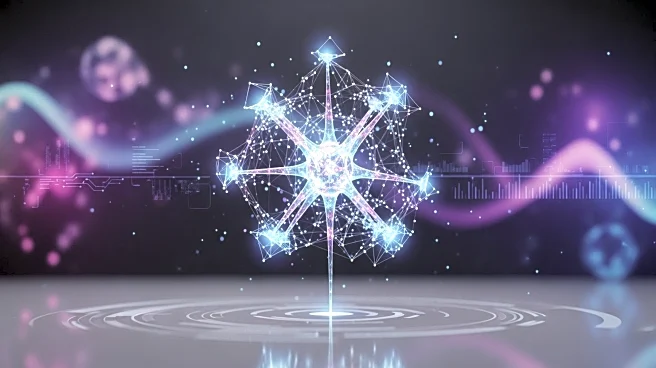What's Happening?
DeepMind researchers have made significant advancements in reinforcement learning (RL) algorithms, as detailed in a recent Nature article. The team, including Junhyuk Oh, Greg Farquhar, and others, has developed a state-of-the-art RL rule through meta-learning
from the experiences of a population of agents across various complex environments. This newly discovered rule has outperformed existing manually-designed rules on the Atari benchmark and other challenging benchmarks. The research suggests that future RL algorithms required for advanced AI may be autonomously discovered rather than manually crafted.
Why It's Important?
The development of advanced RL algorithms by DeepMind represents a pivotal moment in AI research, potentially transforming how AI systems learn and adapt. This breakthrough could lead to more efficient and powerful AI applications across industries, enhancing capabilities in areas such as robotics, autonomous systems, and data analysis. The ability to autonomously discover RL algorithms may reduce the need for human intervention in AI development, accelerating innovation and deployment in various sectors.
What's Next?
The implications of DeepMind's research could lead to further exploration and refinement of autonomously discovered RL algorithms. As these algorithms continue to evolve, they may be integrated into commercial AI systems, offering new solutions to complex problems. Researchers and industry leaders will likely monitor the progress and application of these algorithms, assessing their impact on AI development and deployment strategies.
Beyond the Headlines
The ethical and societal implications of autonomously discovered RL algorithms warrant consideration. As AI systems become more self-sufficient, questions about accountability, transparency, and control may arise. Ensuring that these systems align with human values and ethical standards will be crucial as they become more prevalent in decision-making processes.

















